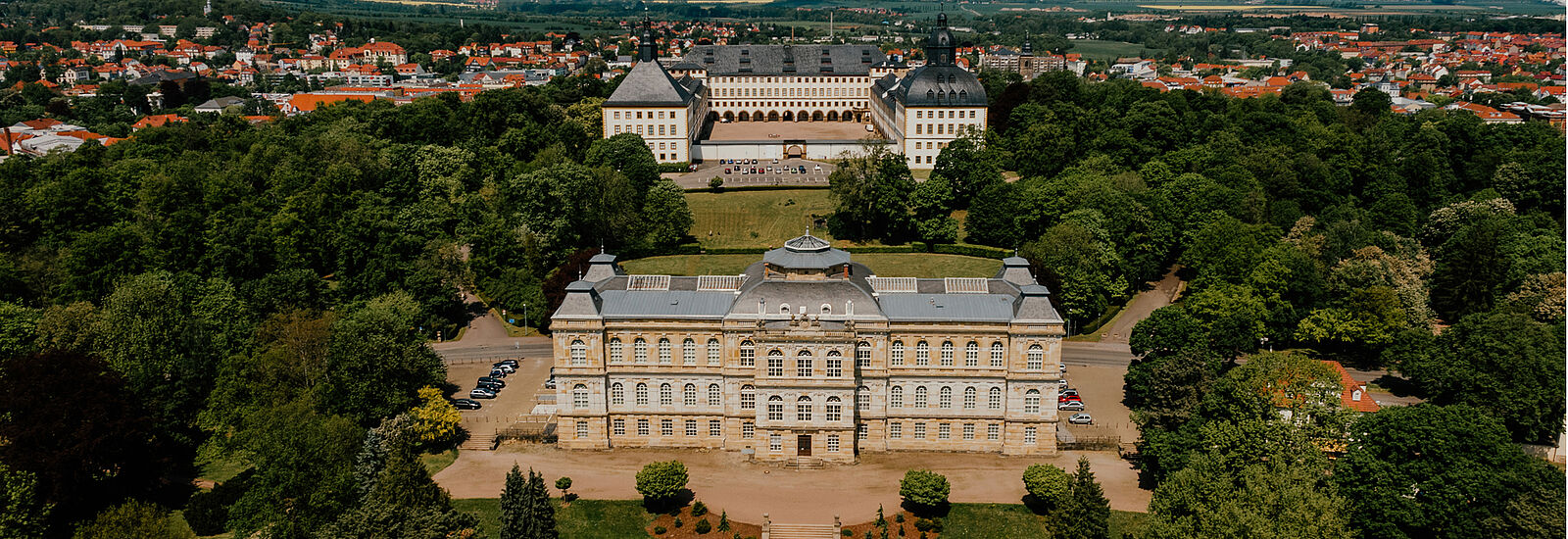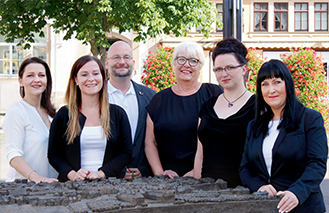Erstmaligkeiten aus Gotha
First mass rally after reunification – Willy Brandt in Gotha
The former President of the Socialist International, Honorary Chairman of the SPD and Nobel Peace Prize laureate Willy Brandt held a speech on German reunification in front of more than 100,000 people on Gotha’s Hauptmarkt square on 27 January 1990.
One of Germany’s first overland tramways – trips to the magical Thuringian Forest
The Thuringian Forest Line to Walterhausen and Bad Tabarz was opened on 17 July 1929 to promote tourism. The forest line doesn’t just link Gotha to the aforementioned places but also stops at popular day trip destinations. It is the last of its kind in Thuringia and still delights the people of Gotha and guests today.
The first flight of an aircraft built in Gotha – the city of German aircraft and pilots
An important metal engineering venture for aircraft and tram carriage construction was created at the Gothaer Waggonfabrik with the aircraft construction department at the start of 1913. The Gotha Taube, a construction based on the Etrich Taube, took to the skies shortly afterwards following a successfully completed test flight. Aircraft construction could be started on a manufacturing basis soon afterwards.
The first crematorium in the German-speaking region – the first modern facility of this kind in Europe
The crematorium was built by Julius Bertuch and Carl Heinrich Stier at Gotha’s main cemetery. The Nobel Peace Prize laureate Bertha von Suttner was cremated there in 1914. The urn with her ashes is still kept in the columbarium today.
Tivoli, founding site of the oldest German socialist party – Gotha’s party conference
The workers’ parties led by Ferdinand Lassalle and August Bebel are merged into Germany’s Socialist Workers’ Party in May 1875 and the SPD is born (renamed in 1890).
The first German shooting sport federation – a tradition that is still continued today
The first German shooting sport federation was founded at Gotha’s shooting house on 11 July 1861 and has 1.4 million members throughout Germany today. Its 160th anniversary is being celebrated in Gotha in 2021.
Gotha, the birthplace of insurance – Ernst Wilhelm Arnoldi
The merchant and “Father of German Insurance” Arnoldi founds the first German business school in 1818, the first national German fire insurance company in 1820 and the first German life insurance company in 1827.
The first observatory in Germany – centre of astronomy
The first German observatory is built on the Seeberg based on plans by the astronomer Franz Xaver von Zach in 1787. It was consecrated in 1791 and is one of Europe’s first specific observatory buildings. Roughly 17 European astronomers met there to share ideas at the first European astronomers’ congress in 1798.
The start of publishing history – Justus Perthes
The “Almanach de Gotha” directory of royalty and higher nobility is taken over by Johann Georg Justus Perthes and the Justus Perthes publishing house is founded in Gotha, which shifts its publication focus to scientific maps, (school) atlases and classroom wall maps from 1816. Influential personalities included Adolf Stieler, Hermann Haack, August Petermann and Carl Joseph Meyer.
The first German court theatre with a permanent ensemble of actors – a unique monument in the history of theatre
Duke Ernest II of Saxe-Gotha-Altenburg founded the first stationary German court theatre. The theatre at Friedenstein Palace, which was later called the Ekhof Theatre, is considered to be the oldest Baroque theatre in the world that still has working stage machinery and is the birthplace of modern theatre culture.
The oldest English style gardens on our continent – English garden / Ducal park
The English garden was created south of the Leina Canal at the suggestion and under Duke Ernest II of Saxe-Gotha-Altenburg. Carl Christoph Besser built a Doric temple dedicated to the god Mercury on the north-western banks of the large park pond between 1775 and 1777, which is considered to be the first Greek-Doric temple in Thuringia.
Almanach de Gotha – Gotha’s genealogical directory of royalty and higher nobility
The Almanach de Gotha is issued by the publisher Ettinger in Gotha for the first time. The directory of royalty and higher nobility was then issued as a series of books by the Justus Perthes publishing house from 1785 to 1944.
The city’s landmark is built – Central Europe’s largest Early Baroque palace
The foundation stone is laid for the construction of Friedenstein Palace by Ernest the Pious during the Thirty Years’ War. A 70 cent stamp of Gotha’s Friedenstein Palace is released on the occasion of its 375th anniversary of being built on 1 March 2018.
First compulsory education – first school system
The German educator Andreas Reyher introduces the first compulsory education as a state law for boys and girls in a German duchy. With his work on the school laws and methodical instructions for a school system he created an important basis for a standardised primary school education system.
“Gotha’s lovers” – the first German double portrait
There are many myths surrounding this painting as it is still not clear today why two lovers can be seen in one painting as this was extremely unusual at this time. This painting is in the Ducal Museum today.

